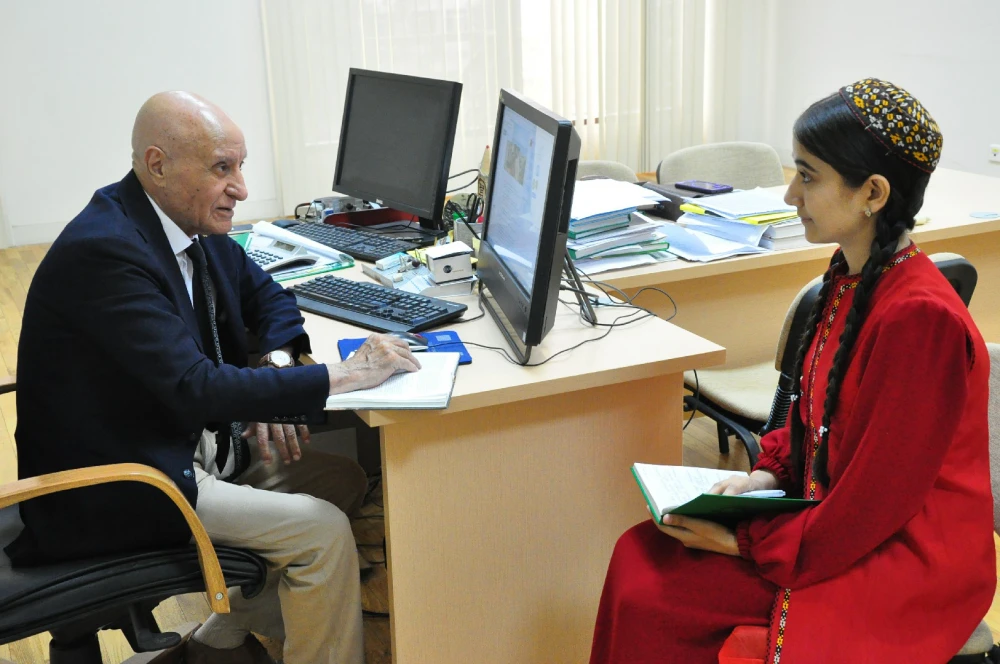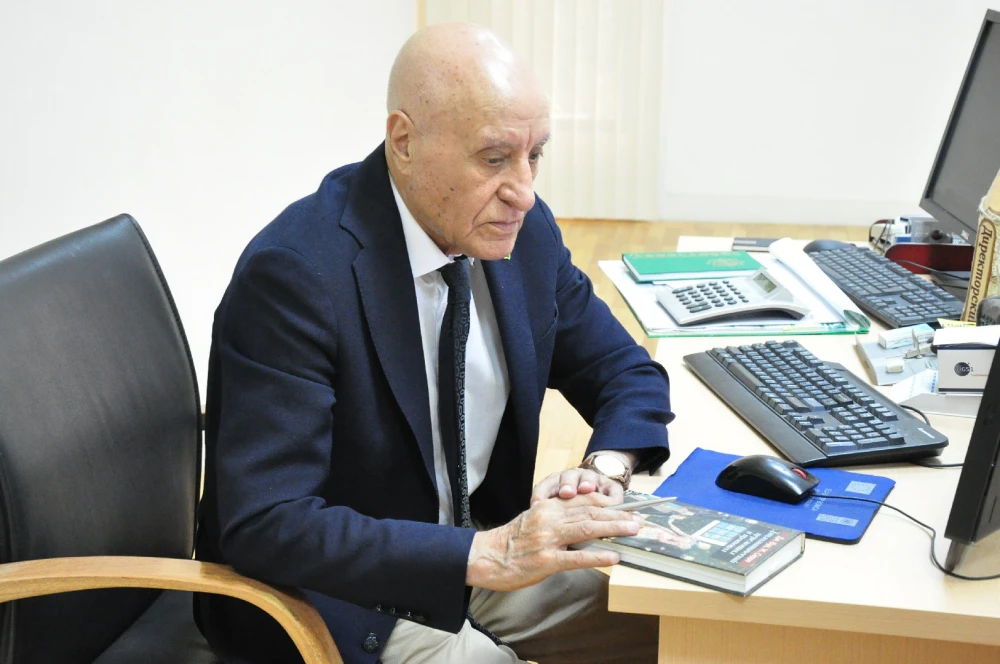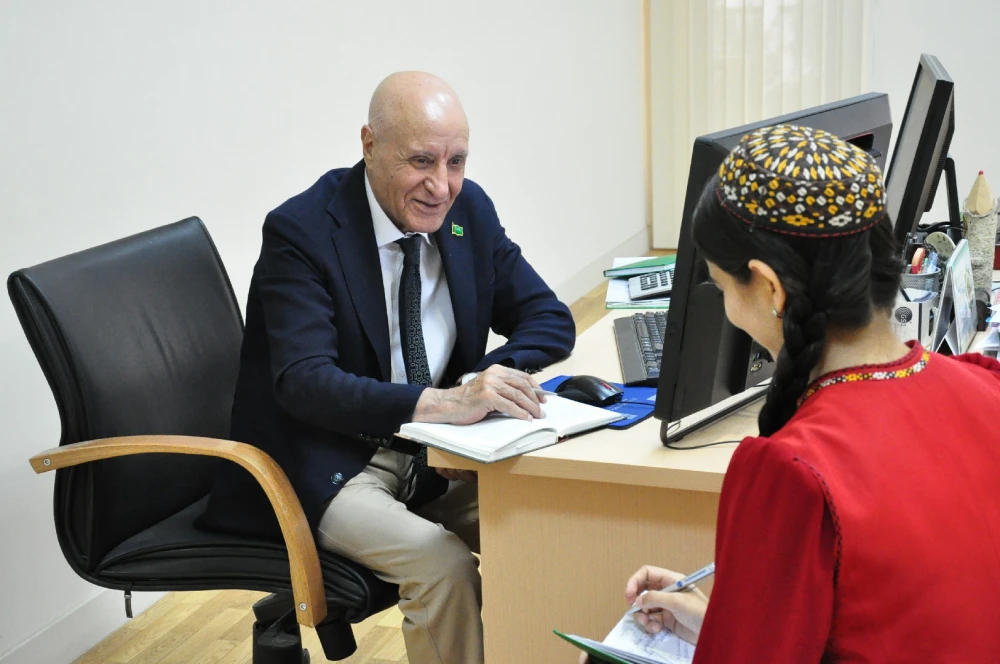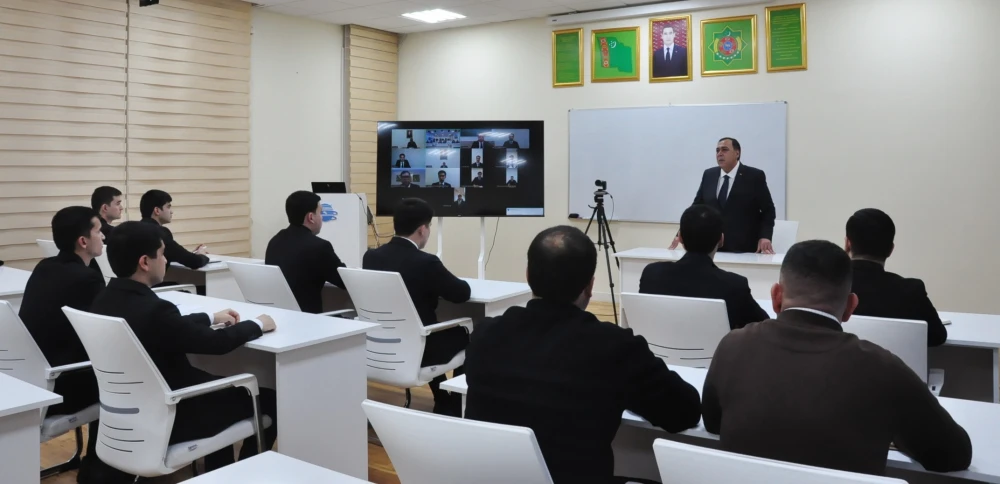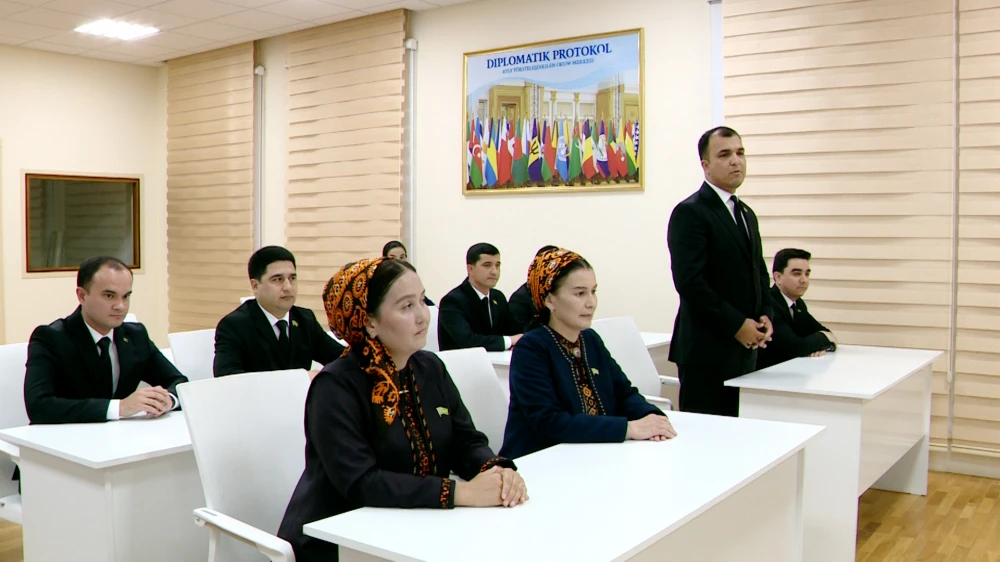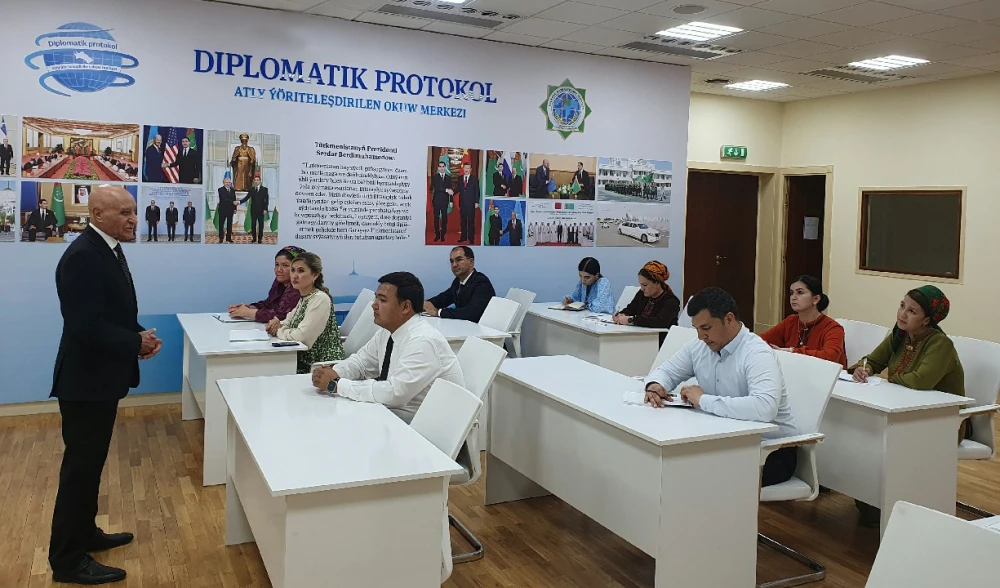01/07/2024
2515
Conversation with professor Ovezdurdy Berdyevich
On February 18, 2024, a specialized training center “Diplomatic Protocol” was opened at the Institute of International Relations of the Ministry of Foreign Affairs of Turkmenistan, which was held as part of the festive events dedicated to the Day of Diplomatic Workers of Turkmenistan. The symbolic ribbon of the opening ceremony of the Center was cut by the Deputy Chairman of the Cabinet of Ministers of Turkmenistan, Minister of Foreign Affairs Rashid Meredov in the presence of the heads of foreign diplomatic missions and representative offices of international organizations, and embassy employees.
Training at the Center began on March 1, 2024. Classes at the center lasting four academic hours are conducted on the job, that is, after the end of the working day. The two-month course of the Center is designed for a total of 120 hours of classes.
Diplomatic protocol is a set of rules, traditions and conventions observed by governments, foreign agencies, diplomatic missions, and other officials in the process of international communication. The rules of the protocol are based on the so-called principle of “international comity”. In this context, there is a need to improve the system of training qualified diplomatic personnel in accordance with international standards, capable of representing the interests of the country on the world stage.
The syllabus and training program of the course, aimed at mastering primary knowledge of diplomatic law, the basics of diplomatic protocol and diplomatic etiquette, were developed by professor of the Department of International Relations and Diplomacy of the Institute of International Relations of the Ministry of Foreign Affairs of Turkmenistan, Doctor of Social Sciences Ovezdurdy Muhammetberdiev. In his interview for our website, Ovezdurdy Berdyevich, telling us about the purpose of opening this specialized training center, emphasized: “Today’s diplomacy has become not only the work of professional diplomats. Modern diplomacy has expanded so much that it has acquired many new directions: preventive diplomacy, water diplomacy, energy diplomacy, transport diplomacy, scientific diplomacy, sports diplomacy, digital diplomacy, etc., therefore, knowledge of diplomatic protocol should not only be the prerogative of diplomats, but also all government officials and representatives of public organizations. Considering the fact that today almost all ministries, departments, and various public organizations of the country are included in the international relations of Turkmenistan, it is necessary for the staff involved in these relations to be master with the subtleties of diplomatic protocol, general rules of etiquette and international courtesy. The new training center opened at the Institute of International Relations of the Ministry of Foreign Affairs of Turkmenistan, in accordance with its Regulations, is designed to train not only young diplomatic workers, but also a wide range of employees and responsible representatives, including deputies of the Mejlis of Turkmenistan, employees of public organizations who are today actively involved in international relations in such modern types of diplomacy as water, sports, medical, cultural, transport, energy and other types of diplomacy”.
The professor is absolutely right, because in fact, nowadays modern diplomacy has expanded so much that it plays a very important role in world politics. In our country, special attention is paid to the establishment and development of internal diplomacy.
As the professor told us: “The curriculum includes 4 interconnected training modules. The first module is devoted to issues of foreign policy of Turkmenistan, its place in the system of modern international relations, and the second module is intended to familiarize students with international legal norms related to diplomatic relations, with the articles of the Vienna Conventions on Diplomatic and Consular Relations.
The third module provides topics related to the protocol rules for the activities of diplomatic missions, such as: the procedure for the appointment of heads of diplomatic missions, protocol rules for the presentation of credentials, protocol rules for the completion of diplomatic missions, rules for processing diplomatic correspondence (verbal and personal notes, memoranda, aide- memories), diplomatic immunity and privileges, rules and norms of international courtesy.
The fourth module of the training course covers a wide range of issues relating to both the rules of general civil and diplomatic etiquette. In particular, such topics as: rules of etiquette associated with state symbols, rules of etiquette for greeting, dating, addressing, introducing yourself and colleagues to partners, conducting conversations with them, giving and accepting gifts, ethics of clothing, including rules for wearing suits, watches and jewelry, ties, accessories (briefcases, pens, umbrellas), rules of restaurant etiquette, rules for the use of various cutlery and behavior at diplomatic receptions, etiquette rules for behavior on the street, in public places, on transport, in museums and theaters.”
Conversations conducted with some of the trainees of the Center allow us to conclude that the training sessions conducted at the training center are very interesting, and studying at this center gives trainees the opportunity to improve their professional competencies in the field of diplomatic protocol and diplomatic etiquette on the job, even at the end of their working day.
Maysa ASHIROVA,
the 2 nd year student
of the Faculty of International Journalism
of the Institute of International Relations
of the Ministry of Foreign Affairs of Turkmenistan.

